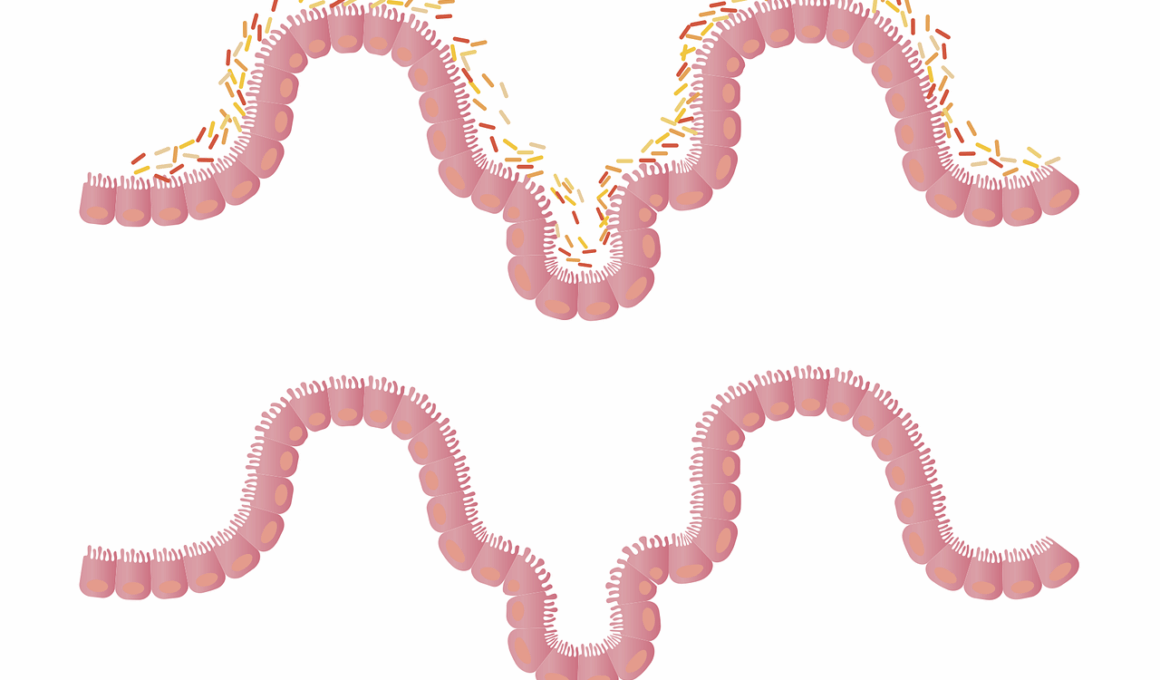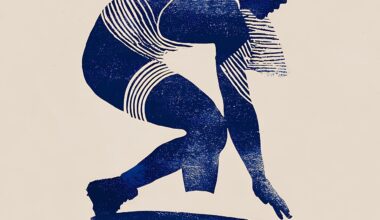Gut Health and Its Impact on OCR Performance
Obstacle Course Racing (OCR) is an intense physical activity that demands a lot from competitors. Therefore, nutrition plays a significant role in an athlete’s overall performance. A crucial aspect of nutrition that is often overlooked is gut health. The gut microbiome, which consists of trillions of microorganisms, significantly affects digestion, absorption of nutrients, and overall health. When athletes optimize their gut health, they often experience improved performance. Gut health impacts not only physical endurance but also energy levels and recovery times. Furthermore, athletes with a robust gut microbiome tend to have better immunity, which is essential during rigorous competition periods. Prioritizing gut health can lead to fewer illnesses and better training continuity. Key components of gut health include a balanced diet rich in fiber, probiotics, and prebiotics. These components help maintain a diverse gut microbiome, which is essential for overall health. By focusing on gut health, OCR athletes can gain a competitive edge, leading to enhanced performance and recovery. In summary, understanding the importance of gut health can help OCR athletes maximize their training outcomes.
Effect of Nutrition on Gut Health
Nutrition is the foundation of gut health, and for OCR athletes, optimal nutrition is vital for peak performance. Consuming a diet high in processed foods can negatively impact gut microbiota diversity. Instead, athletes should focus on whole foods such as fruits, vegetables, lean proteins, and whole grains. Foods rich in fiber, like legumes and whole grains, provide beneficial prebiotics that feed healthy gut bacteria. Probiotic-rich foods such as yogurt, kefir, and fermented vegetables can improve gut flora diversity. Additionally, it is wise for athletes to stay hydrated. Water supports digestion and nutrient absorption. When fueling workouts, OCR athletes might benefit from timing their meals strategically. Eating a balanced meal a few hours before a race or training session ensures adequate nutrient availability. High-glycemic index foods like bananas can be consumed right before performance for quick energy. However, individual tolerance must also be considered, as some athletes may experience gastrointestinal distress with certain foods. By fine-tuning their nutrition, OCR athletes can ensure their gut health remains strong, ultimately leading to superior performance.
In addition to nutrition, psychological factors can also affect gut health. Stress is known to have a negative impact on the gut, potentially leading to digestive issues and inflammation. OCR athletes often face high-pressure situations, especially during competitions. Developing healthy coping mechanisms for stress can positively influence gut health and overall performance. Techniques like mindfulness, yoga, and adequate rest can significantly improve an athlete’s mental state and subsequently benefit their gut health. Additionally, ensuring enough sleep is critical for recovery and maintaining a healthy gut. Sleep deprivation can disrupt the gut microbiome balance, leading to inflammation and an increased risk of illness. It’s essential for OCR athletes to create a consistent sleep schedule that allows for 7-9 hours of quality sleep each night. By managing stress and prioritizing rest, athletes can support their gut health and enhance their competitive abilities effectively. Thus, a holistic approach that encompasses both mental and physical health aspects is necessary for superior athletic performance. Ultimately, mental wellness contributes significantly to physical outcomes, especially for athletes facing obstacles both on and off the course.
Incorporating Supplements for Gut Health
Supplements can be beneficial for OCR athletes seeking to enhance their gut health. Probiotics and prebiotic supplements can come in handy, especially if it’s challenging to obtain enough through diet alone. These supplements help to level up the gut microbiome and foster a balanced system. Before incorporating any supplement, however, it is crucial to consult with a healthcare professional or nutritionist. Every individual’s body responds to supplements differently, and personalized advice can lead to improved outcomes. Moreover, athletes should consider taking essential fatty acids, like Omega-3s, which provide anti-inflammatory benefits that can support gut health. Nutritional supplements containing fiber can also assist athletes looking to increase their intake without drastically shifting their diet. Additionally, electrolyte supplements can help maintain hydration, especially during intense training sessions. Athletes must ensure they meet their daily nutritional goals, including vitamins and minerals, which play a role in gut health. A focused approach to supplementation can enhance the benefits derived from food, leading to improved performance and enhancing recovery in OCR athletes.
In addition to dietary adjustments, athletes should monitor their gastrointestinal (GI) symptoms during intense training and competition. Occasional gut disturbances are common in high-endurance activities, but chronic issues can hinder performance. Keeping a food diary can help athletes identify specific foods that trigger gut discomfort. Furthermore, once problem foods are identified, athletes can make informed dietary adjustments to minimize issues. Experimenting with different foods during training, not during races, allows athletes to understand their individual tolerances. Many athletes have reported that certain fiber sources may lead to bloating or discomfort, particularly if introduced too quickly. Gradually incorporating high-fiber foods into their diet helps the gut adapt without adverse effects. Furthermore, athletes can benefit from experimenting with different hydration strategies, as dehydration can exacerbate gut issues. Structures surrounding meal timing in relation to training and racing are critical. Proper pre-race nutrition is essential, as consuming the wrong food can lead to disappointing race-day performance. Thus, identifying and managing gut-related challenges must be an ongoing part of an OCR athlete’s training regimen.
Understanding the Gut-Brain Connection
Recent research highlights the gut-brain axis as a critical factor influencing athletes’ overall performance, particularly in demanding sports like OCR. The gut and brain communicate constantly, functioning as a system that affects mood, energy levels, and even physical performance. For OCR athletes, maintaining a healthy gut microbiome can positively influence cognitive functions, affecting focus during races. Furthermore, individuals with a balanced gut microbiome are less prone to mood fluctuations and anxiety, which can detract from competition performance. In intense scenarios, athletes who remain mentally focused may perform better than others. Consuming antioxidants and omega-3 rich foods can help protect brain health and optimize the gut-brain connection. Foods such as blueberries, walnuts, and fatty fish should be staples in an OCR athlete’s diet. Additionally, ensuring regular physical activity can foster an atmosphere that supports a healthy gut microbiome and overall mental wellness. With robust scientific backing for gut health and its relationship to mental clarity, OCR athletes are encouraged to take a comprehensive view of their training, recognizing the importance of mental and physical conditioning intertwined.
As OCR races continue to grow in popularity, emphasizing the importance of gut health becomes imperative. Creating awareness about nutrition specific to gut health can empower OCR athletes to take charge of their performance outcomes. Education on how food choices influence both physical and mental aspects of racing can promote better decision-making. Athletes must recognize that nutrition and gut health are not merely afterthoughts; they require proactive management throughout their training and competition cycles. Engaging with sports nutritionists can further enhance athletes’ understanding, leading to better dietary strategies that maximize gut health. Communities supporting OCR can also play a role in sharing personal experiences and tips for optimizing nutrition. Group workshops or online resources can provide valuable insights into the challenges faced during training and racing regarding gut health. Social media and forums can serve as platforms for these communities to share success stories and science-backed advice. Fostering a culture that values knowledge on gut health will ultimately benefit athletes’ long-term performance, allowing them to achieve their goals and push the limits in the world of OCR.
Conclusion: Prioritizing Gut Health
In conclusion, gut health plays a pivotal role in the performance of OCR athletes. By prioritizing nutrition that supports gut microbiome diversity, practitioners can enhance both physical endurance and mental clarity. This holistic approach requires athletes to look beyond basic dietary goals and consider how their gut health influences performance. Strategies include consuming whole foods, maintaining hydration, managing stress, and sleeping well. By incorporating targeted supplements when necessary and keeping a close watch on their gut symptoms, OCR athletes can unlock their potential. Understanding the connection between gut health and overall athletic performance is integral to success in any competitive sport. The journey toward optimizing gut health does not have to be overwhelming; instead, athletes can gradually implement changes that lead to significant improvements. Through education, community support, and a commitment to health, OCR athletes can elevate their training and achieve new levels of success. The bottom line is clear: a healthy gut translates into enhanced performance on the course, maximizing athletes’ endurance, energy levels, and ability to recover. As OCR continues to evolve, so should our understanding of essential aspects like gut health.





